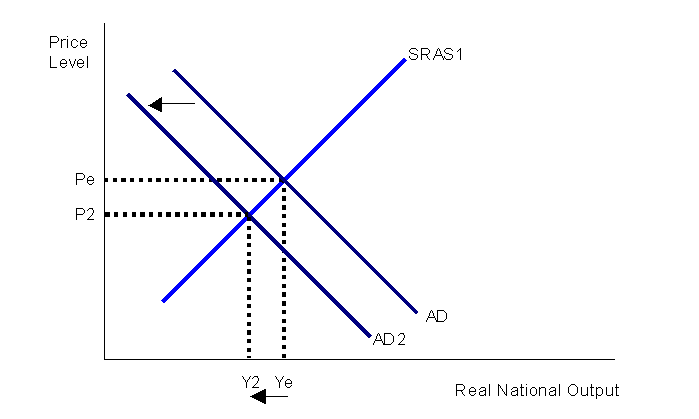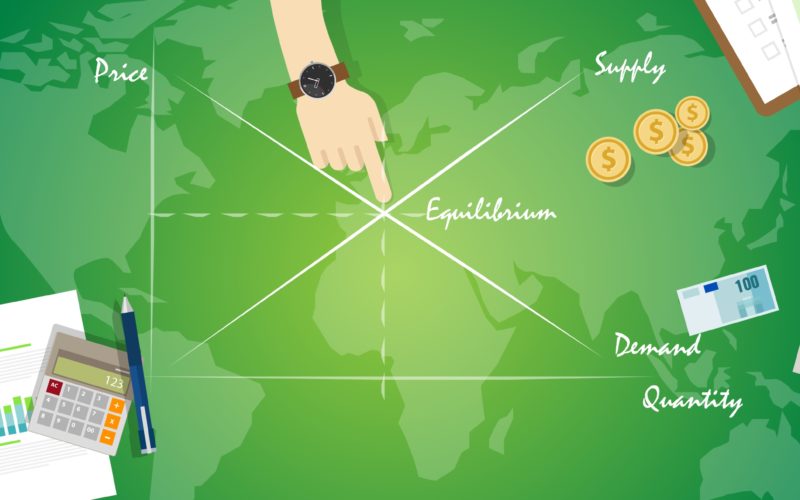Everything is overpriced. The COVID-19 pandemic and economic shutdown created a demand shock that has reduced overall market demand for the majority of products, while supply has stayed roughly the same. As a result, the average prices that people are willing to pay for most everything has declined, and prices have not yet caught up.
Here is a supply and demand diagram to illustrate my point:

AD2 represents the new, reduced demand level present in the US economy. The systemic reduction in demand will result in less quantity demanded (Y2) and lower prices (P2).
This analysis is overly simplified, and I want to caveat that supply and demand are incredibly nuanced. Instead of thinking through all of the exceptions and edge cases (toilet paper), I want people to focus on the concept itself at a macro level and not the nuances. Generally speaking, the systemic shock of COVID-19 has reduced consumer demand across all sectors of the economy, meaning average prices are too high marketwide.
Prices are still hovering at their pre-COVID fantasy level because price adjustments lag a demand shock. Initially, firms and individual sellers of goods will not bring their prices down in the hope that demand will return to pre-COVID levels when the economy reopens. Additionally, companies are built for the pre-COVID world, with supply chains, margin structures, beliefs that pre-date the current reality of the market.
Over time, firms and sellers will realize that their goods and services are not selling (or not selling at adequate volumes) at their previous prices, and begin to cut prices. For example, in the real estate market, sellers will find it harder to sell their homes, and they will be forced to cut prices to attract buyers. Over time, average prices across the economy will decline. Declining prices should manifest everywhere: real estate, cars, stocks, consumer goods, and more.
I am also intentionally not focusing on supply shocks. I realize that the supply chain for many products has been disrupted, and theoretically, if the supply drops enough, even with a lower level of demand, prices could remain the same. However, the supply chain is easily repairable, whereas consumer confidence is not.
Until we have an effective vaccine for COVID-19, consumers will be nervous about a possible resurgence of the virus and another forced shutdown. Experts are reporting that the pandemic will last for 18 to 24 months (CNN). In response to the uncertainty, consumers are already hoarding cash out of fear (CNN). On top of this, over thirty million people in the US have filed for unemployment, and these jobs will not all instantly come back when the economy reopens.
Many businesses, like restaurants, will be forced to operate at reduced capacity. Plus, many closed businesses are concerned about low demand and unpredictable fluctuations upon reopening. When businesses reopen, they will rush to cut costs, and as a result, employ fewer workers. Furloughed workers will become laid-off workers when companies realize they cannot operate with the same sized workforce in the new reduced demand environment.
We are entering a deflationary feedback loop that will produce less and less demand and lower prices: scared and unemployed consumers stop or reduce spending, which causes businesses to cut costs and lower prices to stimulate demand. Lower prices mean less revenue and profit for businesses, which results in further cost-cutting, more systemic fear, and more layoffs. Meanwhile, consumers will see falling prices and will withhold consumption in anticipation of lower prices in the future, which continues the loop.
The COVID-19 pandemic and the resulting economic shutdown created a demand shock that has set off a period of deflation. It will take some time for prices to catch up to the new economic reality, but I expect that over the next 12 to 24 months, prices across the US economy, and likely the globe, will decline. If you were thinking about making a significant purchase, I recommend waiting at least 12 months to see what happens.




